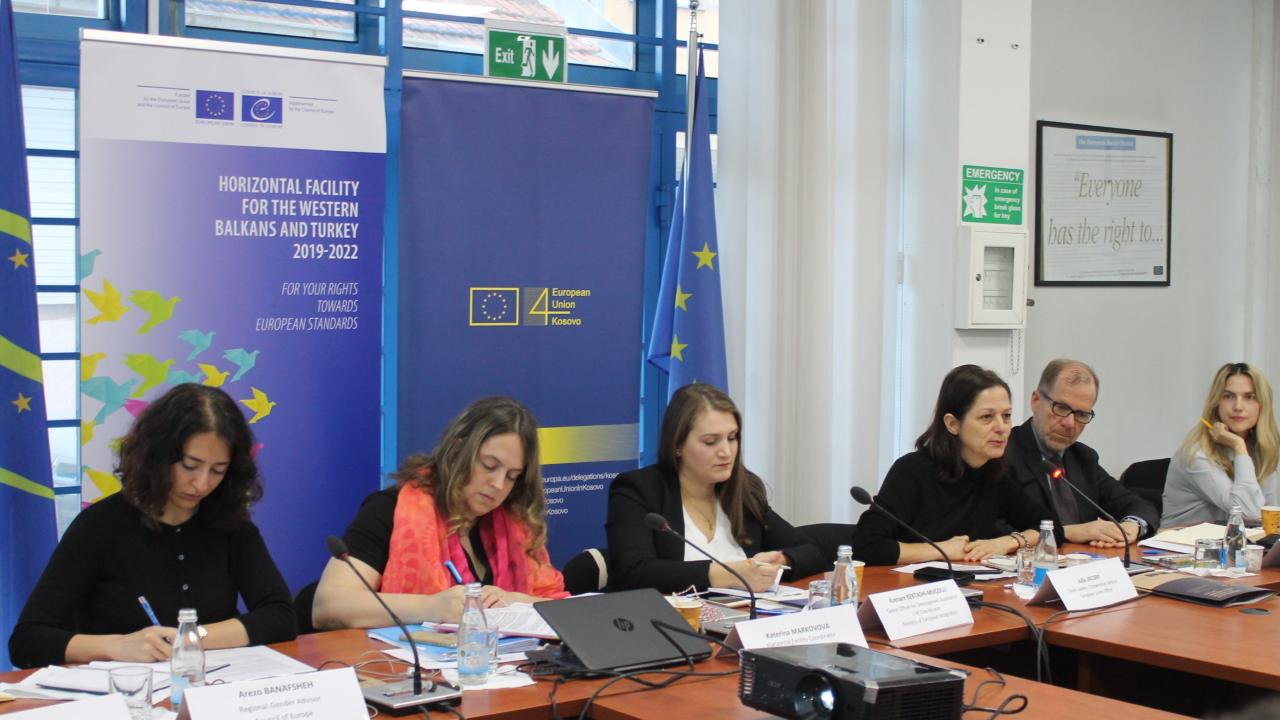More efficient justice system, enjoyment of equal rights for all the citizens and guaranteed freedom of expression and freedom of the media are of the utmost importance for the people of Kosovo, thus further reforms need to be undertaken to ensure these. This was underlined at today’s First Beneficiary Steering Committee Meeting of the joint European Union and the Council of Europe programme “Horizontal Facility for Western Balkans and Turkey 2019-2022”. ..
Krenare Bektashi-Muçolli, Horizontal Facility Co-ordinator at the Ministry of European Integration, welcomed the continuation of the programme in Kosovo which builds on the success and the results of the first phase. Bektashi-Muçolli emphasised the importance of the programme in supporting ongoing reforms in Kosovo, putting a particular focus on the regional cooperation and coordination of the programme.
Julia Jacoby, Team Leader, Co-operation Section - European Union Office, in her address focused on the sustainability and ownership of the Horizontal Facility programme and the importance of the institutions to actively participate in these reforms processes. “Ownership is the key to success of the Horizontal Facility and I encourage our beneficiaries to be active and provide important feedback so we can better adapt our interventions to your needs”, emphasised Julia Jacoby.
Katerina Markovova, Horizontal Facility Co-ordinator, Office of the Directorate General of Programmes in the Council of Europe, highlighted that citizens remain at the heart of the actions implemented within the programme and were designed to contribute for guaranteeing the protection of their fundamental human rights as well as their right to access information, based on Council of Europe methodologies and best practices.
The meeting gathered in Pristina key partners and stakeholders to discuss and agree on the course of actions to be implemented in Kosovo in the following years. The European Union and the Council of Europe will continue to work closely with authorities and civil society in Kosovo in supporting and assisting them to comply with European standards and contribute to the European path of Kosovo.
The second phase of the Horizontal Facility programme, to be conducted between 2019 and 2022 and worth €41 million, builds on the results of the first phase and will continue to develop important initiatives in all the Western Balkans beneficiaries, including Albania, Bosnia and Herzegovina, Kosovo, Montenegro, North Macedonia, Serbia, as well as Turkey. In Kosovo, 1,7 million euros have been allocated for three actions, covering the key areas of the Horizontal Facility: strengthening the quality and efficiency of justice; promoting diversity and equality and advancing freedom of expression and freedom of the media.
More information on the Horizontal Facility Programme
For further information, please contact:
Besnik Baka [email protected], +355 69 217 84 30
Marija Simic [email protected], +381 63 60 13 37
_______________________________
*This designation is without prejudice to positions on status, and is in line with UNSCR 1244 and the ICJ Opinion on the Kosovo Declaration of Independence.




